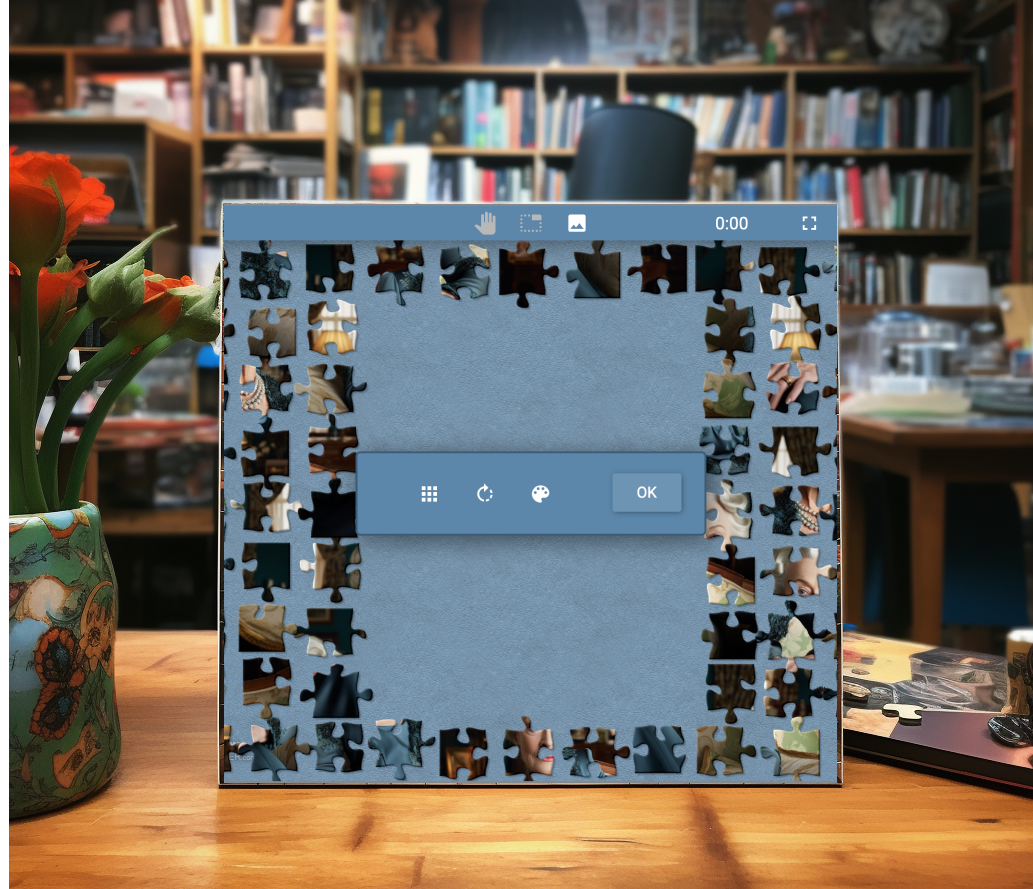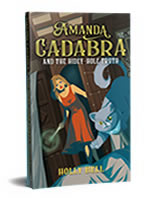Dear Readers,
This week’s new video grapples with what happens next after an author has made the decision to use UK English. It may seem that writing it in will now be straightforward. But appearances can be deceptive …
https://amandacadabra.com/ac1-trailer/fabulous-foreigners-in-fiction-which-uk-english
That was part 2 of Fabulous Foreigners in Fiction. If you missed part 1: Decisions, Decisions, then you can catch up here:
 Book 9 Latest
Book 9 Latest
In the Amanda Cadabra sequel news update, I can announce that I’ve reached the milestone of 5,000 words! But more than that, I have completed Stage 2 of the writing process.
Something Missing?
‘Excuse me. What was Stage 1?’ I hear you ask. And quite rightly. Stage 1 is the blooming and recording, in notes or voice memos, of ideas, chapters, conversations, sketches of characters, anecdotes and plot notions in the author’s fertile imagination. For me, this begins during the writing of one or two books before.
For example, when writing book 6, Amanda Cadabra and The Strange Case of Lucy Penlowr, the first book set in Cornwall, I knew that book 9 would return there. More specific ideas for it started popping up during the writing of book 7, Amanda Cadabra and The Hanging Tree. So that was my Stage 1 for Book 9.
Stage 2
This is when all of these notes are collated into one document, and this week, the last of those, plus some fresh material, went into the Word doc imaginatively entitled Book 9 – collating.
Other authors, of course, may have a different system, but this is the one that works for me, and I am sharing with you.
‘Now, what is Stage 3?’ you enquire. That I shall reveal next week.
New Puzzle
In the meantime, for your entertainment, here is the unveiling of the new jigsaw revealing another favourite character from the Amanda Cadabra series.
https://amandacadabra.com/puzzles/
Tips on using the puzzle can be found the latest jigsaw.
How Did You Do It, Holly?
How did I create these puzzle images, you may be wondering. I have been using a well-intentioned but somewhat challenged young AI bot on Midjourney. There are a few of these AI image creators from which to choose. However, I settled on Midjourney because its policy states that it uses only public domain images and ones for which they have paid. It is sensitive to intellectual property and urges users to use only licensed and public domain images when adding their own into the mix.
Images are created by a ‘prompt.’ You might call it a set of instructions. In practice, it is more of a negotiation. You need to keep modifying your prompt until one of the bot’s attempts matches what you’re after. Consequently, I had to go through a few iterations before the character in the first puzzle (spoiler alert) was sufficiently big, fat, fluffy, and malevolent of gaze.
This week’s effort didn’t have quite the costume the character would normally wear, but more ready for the seasonal ball at The Grange. Still, I do think it’s captured the person in other respects. Do please let me know what you think.
Thank You
Finally, on the puzzle note, thank you to everyone who kindly took the time to write to me with their feedback on the first jigsaw and ideas for future ones. I’d love to hear more. After all, these are expressly for you.
Amongst making the new video, this week’s puzzle and writing the new book, I embarked on my first adventure in co-teaching beginners’ Conronish language with my long-standing study buddy Linda. Our students come from far and wide, with only 2 or 3 living in Cornwall. Others in other parts of the UK or abroad.
 Where It All Began
Where It All Began
It took me back five years to when I began writing the Amanda books and created Wicc’Yeth, the magical language of her world. It is comprised of Cornish and Old English. And I felt back then that if I was going to use their language, then out of respect for the people and their heritage, the least I could do was learn some of it. And so it began, first with research online and finding Kesva, the official body for teaching Cornish. Grade 1 lesson 1 and then tutor and friend-to-be Kensa Broadhurst, who now teaches the language to students at Exeter University.
At first, I learned by email correspondence from London with Kensa in Cornwall. And then … lockdown changed the game for the Cornish language community. With classes in person becoming undesirable, they had to move for the first time to online. Suddenly, students from around the globe could learn together using Zoom and other applications. It was an exciting breakthrough, and the number of Cornish language participants shot up.
From Student …
Today, we are enjoying that positive legacy and for me, no longer as a student but as a teacher. Of course, my own Cornish journey continues with a project I shall share with you when I start it.
But I digress. Remembering my early days as a beginner, I could easily put myself in the students’ shoes, recalling the excitement and slight trepidation of embarking, in the presence of strangers, on learning a new language as an adult student and online with modern technology. But our group did very well, and seemed to emerge from the experience cheerful and with every sign of returning next week. Which is always encouraging to a teacher!
Next Week
The new video will explore the strange and complex question of what is meant by ‘foreign’ in part 3 of Fabulous Foreigners in Fiction. And a new puzzle will reveal yet another favourite character in the Amanda Cadabra pantheon. Plus, Stage 3 of the Sequel Production.
Happy October,
Holly





